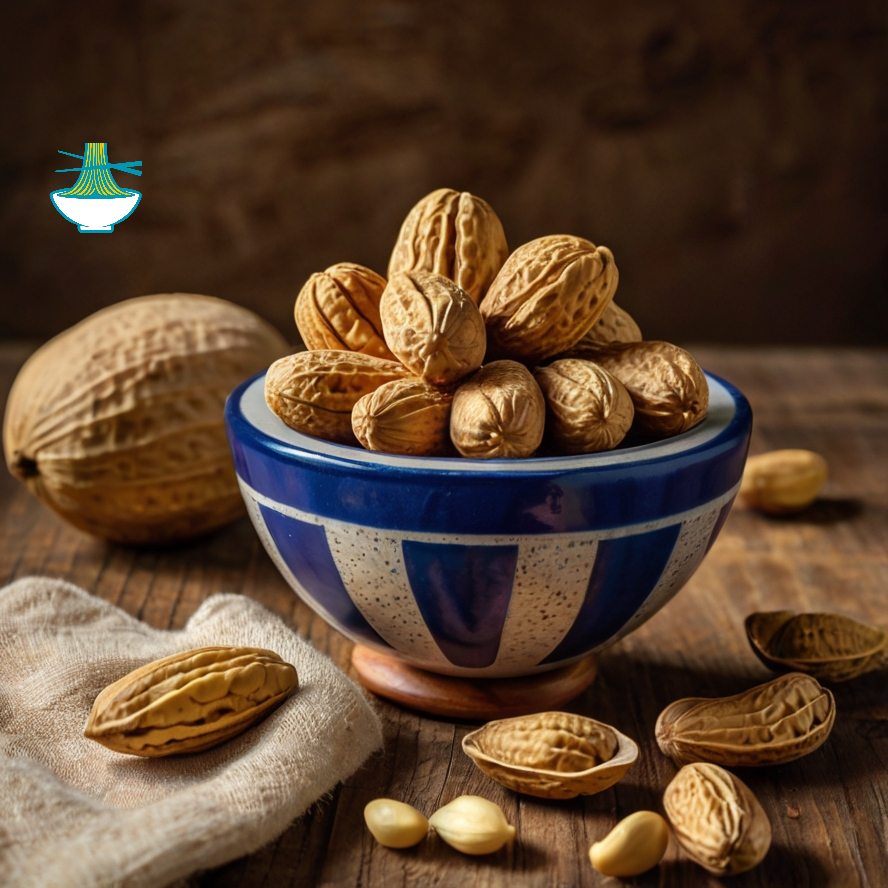Discover the delight of creating your own Bamba at home! Bamba is an iconic Israeli snack beloved across generations. This peanut-flavored puff has a light, airy texture, akin to Cheetos, but with a creamy, peanutty twist. Not only is it a popular snack among all ages, but it's also often introduced to toddlers as one of their first solid foods, thanks to its melt-in-your-mouth texture and contribution to early peanut exposure. Follow this simple recipe to enjoy a homemade version of this delightful treat!
Ingredients:
- 1 cup peanut butter (smooth)
- 2 tablespoons powdered sugar (adjust based on preferred sweetness)
- 1/4 teaspoon salt
- 1 cup cornmeal
- 2 tablespoons all-purpose flour
- 1/2 teaspoon baking powder
- About 1/2 cup water (adjust as needed for dough consistency)
- Vegetable oil for frying
Instructions:
Prepare the Dough:
1- In a large mixing bowl, combine the cornmeal, all-purpose flour, powdered sugar, salt, and baking powder. Whisk these dry ingredients together to ensure they are evenly mixed.
2- Add the peanut butter to the dry mixture. Using your hands or a mixer on a low setting, start to blend the peanut butter into the dry ingredients until the mixture resembles coarse crumbs.
3- Gradually add water, a little at a time, kneading until the dough comes together in a pliable but not sticky form. The dough should be easy to shape but not wet.
Shape the Bamba:
1- Take small portions of the dough and roll them into little logs or the traditional Bamba shape. Aim for a size that’s easy to snack on, similar to commercial Bamba. If the dough starts to dry, you can lightly wet your hands to make shaping easier.
Fry the Bamba:
1- Fill a deep frying pan or a pot with enough vegetable oil to deep fry the Bamba pieces. Heat the oil to 350°F (175°C).
2- Carefully place the Bamba pieces into the hot oil, working in batches to avoid overcrowding the pan.
3- Fry until they puff up and turn a light golden brown, usually about 1-2 minutes, depending on size.
4- Use a slotted spoon to remove the Bamba from the oil and transfer them to a plate lined with paper towels to drain any excess oil.
Cool and Serve:
1- Allow the Bamba to cool down before serving. They will continue to crisp up as they cool.
2- Store any leftovers in an airtight container to maintain their crispness.
Notes:
- Homemade Bamba is a fresh, preservative-free snack. It's best consumed within a few days of making.
- Feel free to adjust the sweetness or saltiness according to your taste preferences.
- Always supervise young children when introducing new foods.
Enjoy your homemade Bamba, a taste of Israel right in your own kitchen!
Nutritional Values :
Below are the approximate nutritional values for the ingredients used in the homemade Bamba recipe. Keep in mind that these values can vary slightly depending on the specific brands or types of ingredients used. The values provided are based on common averages and are per serving or unit as specified.
1 cup Peanut Butter (smooth):
- Calories: 950 kcal
- Fat: 80g
- Carbohydrates: 30g
- Protein: 30g
Benefits: Peanut butter is high in healthy fats, protein, and several essential vitamins and minerals. It provides energy and supports muscle health, but should be consumed in moderation due to its calorie density.
2 tablespoons Powdered Sugar:
- Calories: 30 kcal
- Fat: 0g
- Carbohydrates: 8g
- Protein: 0g
Benefits: Powdered sugar adds sweetness but lacks nutritional value beyond its contribution to calorie intake. Adjust the amount based on your taste preference.
1/4 teaspoon Salt:
- Calories: 0 kcal
- Fat: 0g
- Carbohydrates: 0g
- Protein: 0g
Benefits: Salt enhances flavor. Moderation is key to avoid excessive sodium intake, which can impact blood pressure.
1 cup Cornmeal:
- Calories: 440 kcal
- Fat: 2g
- Carbohydrates: 92g
- Protein: 10g
Benefits: Cornmeal is a good source of carbohydrates and fiber. It provides energy and supports digestive health.
2 tablespoons All-Purpose Flour:
- Calories: 60 kcal
- Fat: 0g
- Carbohydrates: 13g
- Protein: 2g
Benefits: Flour helps to bind the ingredients together. It's a source of carbohydrates and adds texture to the dough.
1/2 teaspoon Baking Powder:
- Calories: 0 kcal
- Fat: 0g
- Carbohydrates: 0g
- Protein: 0g
Benefits: Baking powder is a leavening agent that helps the dough rise. It is essential for the texture of baked goods but does not contribute significant nutrition.
About 1/2 cup Water:
- Calories: 0 kcal
- Fat: 0g
- Carbohydrates: 0g
- Protein: 0g
Benefits: Water is used to adjust the dough's consistency. It has no calories or nutrients but is crucial for proper dough formation.
Vegetable Oil for Frying:
- Calories:120 kcal per tablespoon (varies with type of oil)
- Fat: 14g per tablespoon
- Carbohydrates: 0g
- Protein: 0g
Benefits: Vegetable oil is used for frying and adds calories and fat to the dish. Choose oils with healthier fat profiles if possible.
This nutritional estimate is very rough; actual values can vary. For more precise nutritional information, especially if you have dietary concerns or restrictions, consider using a detailed nutritional calculator or consulting with a nutritionist, particularly to adjust for the oil absorbed during frying.


Comments